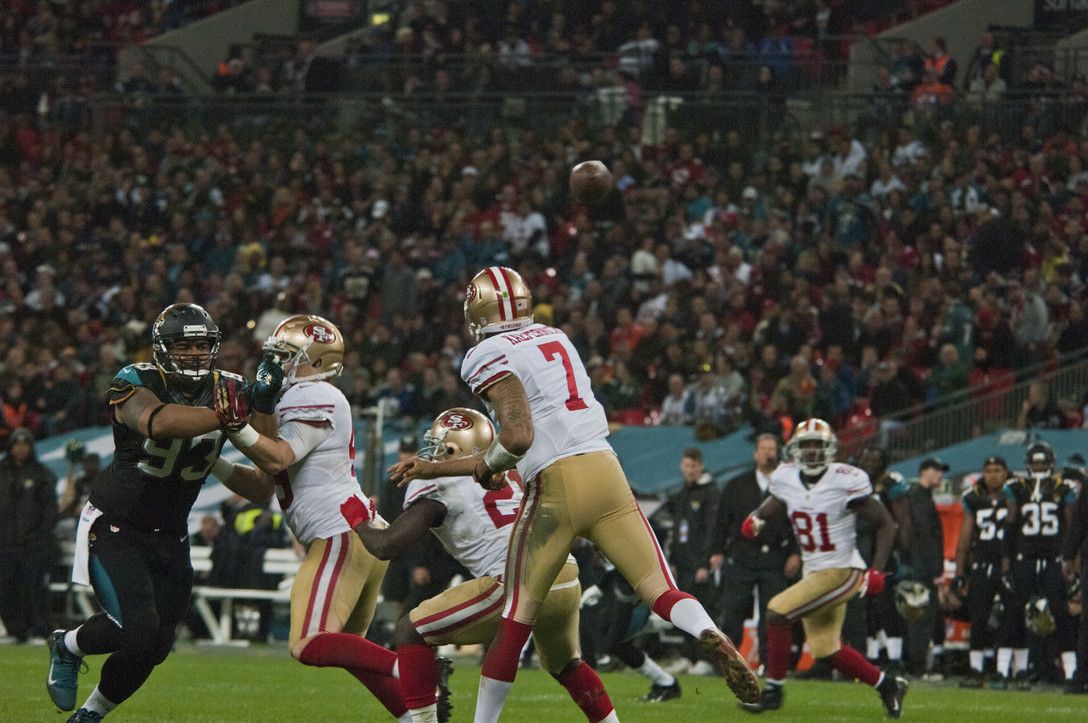Views expressed in opinion columns are the author’s own.
Over the past couple years, there have been countless instances of the business world seemingly engaging with the feminist, LGBTQ rights and Black Lives Matter movements, among others. The interaction between big business and social movements has been variably praised and criticized. But in a more general sense, the business community is fundamentally incapable of engaging with these movements in a meaningful way.
Nike’s shallow attempt at activism is an excellent example. In September, the company co-opted a genuine protest movement for its own purposes. Colin Kaepernick had been effectively blacklisted from the NFL for protesting police brutality and institutional racism before Nike decided to make him the face of their new ad campaign.
Some praised Nike for what appeared to be bravery in supporting a maligned symbol of black protest. Yet the move was a hollow, hypocritical form of engagement with genuine social justice, as is almost any form of “corporate social activism.” Had Nike calculated it would take losses from its decision to feature Kaepernick, they certainly wouldn’t have done it — the ad campaign came out of their plan to “gain the young, urban market it has long targeted.” And they could not be further from genuinely supporting a social justice movement, as their penchant for sweatshop labor demonstrates.
The phenomenon of “corporate feminism” similarly falls short. Take the famous Fearless Girl statue on Wall Street, which has been in the news recently for its move to the New York Stock Exchange. State Street Global Advisors, the organization that had the statue installed, says its goal was “to raise awareness about the importance of gender diversity in corporate leadership.”
On the surface, it’s an inoffensive tribute to the feminist movement. But understanding feminism as simply increasing the number of women in corporate boardrooms negates the rigid class hierarchy that Wall Street symbolizes. This isn’t to mention State Street’s obvious hypocrisy: Last year, the Labor Department found the company consistently underpaid its female and black executives.
As Arwa Mahdawi wrote in The Guardian, feminism is centered in the fight for equality for all women, not just the privileged elite. Female executives who endorse the same “exploitative capitalist conventions” as their male counterparts don’t embody this principle. Enforcing a system in which owners and managers derive profits from the labor that they exploit can’t be the cornerstone of a movement about diversity and inclusion. Of course, men occupy far more positions of corporate power, and trying to change that is admirable. However, that is only a small piece of a much larger struggle against oppression and it needs to be recognized as such.
Lastly, The Walt Disney Co. has been praised recently for producing new movies that are more representative, featuring far more non-white characters. Just like women climbing the corporate ladder, greater representation in movies is clearly important. But it’s also part of a larger system that should be viewed more critically.
Movies such as Black Panther and Coco serve an important function in depicting people of color in prominent roles. Yet it shouldn’t be forgotten that Disney is also a massive corporation. Along the way to producing these movies, Disney pays its executives and famous actors exorbitantly while its lower level employees can barely survive on their wages. Disney also has a tendency to commodify the cultures it is supposed to be representing. In 2013, it even tried to trademark the phrase “Dia de los Muertos,” the Mexican holiday that was the inspiration for Coco, which made the company more than $800 million at the box office alone.
These examples serve to demonstrate the principle that the business world is incompatible with any authentic form of social justice. There’s simply no way around it.
Zachary Jablow is a sophomore economics and government and politics major. He can be reached at zachjablow@gmail.com.



